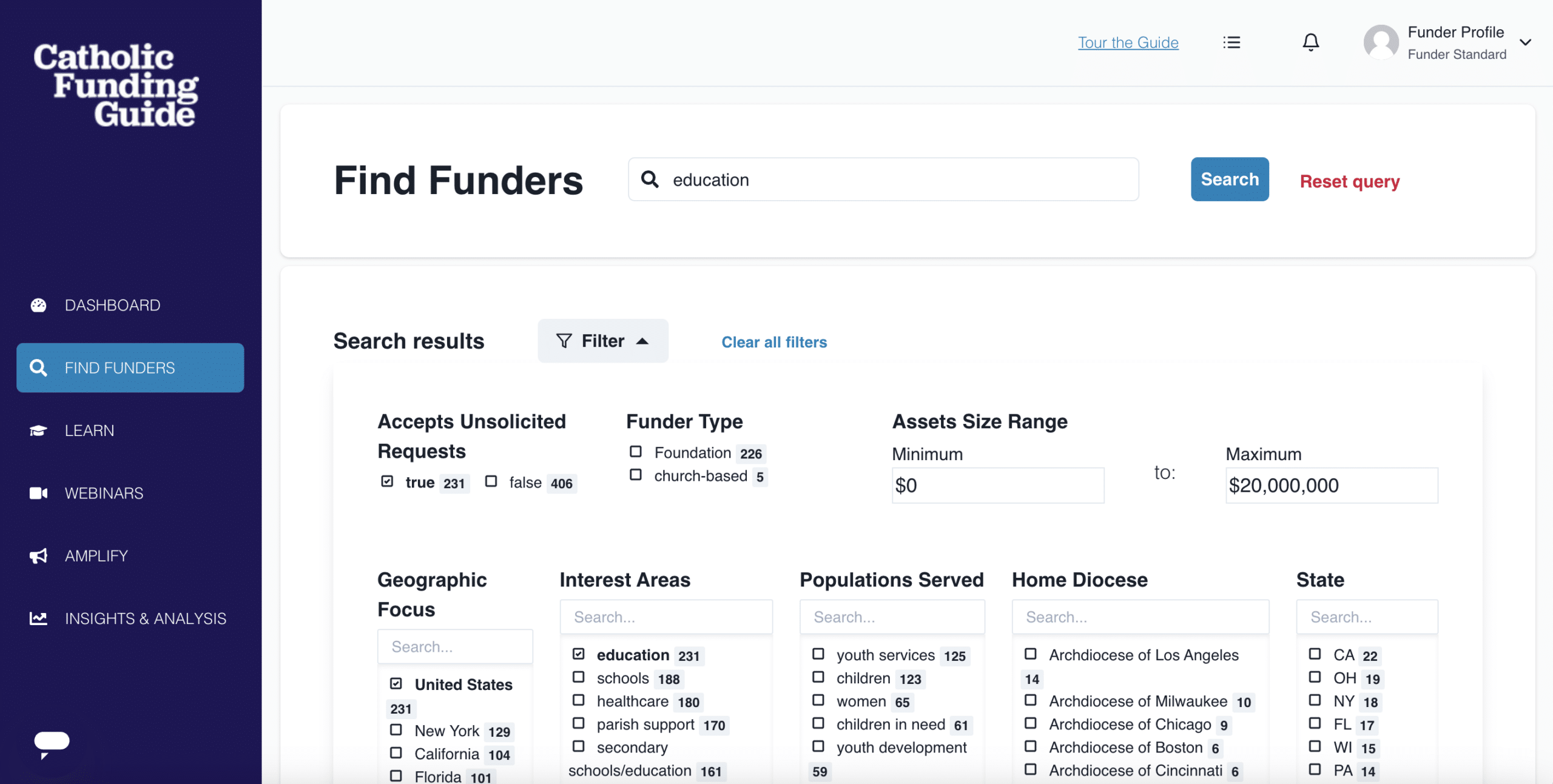What Is Trust Based Philanthropy and Why Does It Exist?
Trust based philanthropy is an approach to giving that prioritizes the grantee-funder relationship. It is based on a loosely defined set of principles that attempt to remove the power imbalance that is present in many traditional grantmaking situations.
Unrestricted grant giving is possibly the most familiar principle associated with trust based philanthropy. Other principles include multi-year funding, proactively researching issues and organizations, simplifying the vetting and application process, practicing transparent communication, soliciting feedback, and offering non-financial support.
The term “trust based philanthropy” was coined by the Whitman Institute in 2014 and further explained by The Trust-Based Philanthropy Project. In recent years, and especially since the pandemic, it has grown in popularity as a giving practice. It has sparked countless conversations and has been interpreted and applied in many different ways.
Despite the lively debate around trust based philanthropy and the varying methods of application, the core of the practice remains the same: shifting the existing power dynamic to make philanthropy more sustainable and effective.
“At its core, trust-based philanthropy is about redistributing power—systemically, organizationally, and interpersonally—in service of a healthier and more equitable nonprofit sector.” (Source: The Trust-Based Philanthropy Project)
“In this approach, trust becomes the cornerstone, enabling a dynamic exchange of ideas and fostering mutual learning. Unlike the traditional model, where grantmakers maintain tight control, trust-based philanthropy values transparency, collaboration, and open communication.” (Source: Classy)
Trust Based Philanthropy Requires a New Perspective
Trust based philanthropy upholds grantees and funders as partners. This often requires a perspective shift for both grantees and funders.
It is a common misconception that trust based philanthropy is in direct contradiction to strategic philanthropy. Although it is gaining traction, it still has a bad reputation among many funders. One article in the Stanford Social Innovation Review stated:
“[D]onors have suggested that making unrestricted grants is evidence of not having done enough work to determine the best way those funds should be spent.”
However, in its true intent, trust based philanthropy – when done well – is actually strategic. The two don’t have to be at odds.
“It’s a natural progression for philanthropy to begin to embrace these principles of trust based philanthropy.” – Theresa Robinson
In a webinar we hosted in March 2024, one of our guests – Theresa Robinson, Executive Director of the Raskob Foundation for Catholic Activities – shared her thoughts on trust based philanthropy as an extension of traditional philanthropy.
The full webinar, and all past webinar recordings, are available on demand for subscribers.
What Does Trust Based Philanthropy Look Like? Expectations & Criticisms
Trust based philanthropy allows funders to be more flexible, adapt to changes, and even provide emergency relief faster; all of which contributed to its rapid growth in popularity during the pandemic. At first glance, then, this approach can seem like an obvious choice for funders who want to maximize their impact.
However, trust based philanthropy raises some concerns among funders. These include whether the money given will be used responsibly, and whether it will discourage sustainability and consistent change. For example, funders may be concerned about nonprofits seeking operating support with no strong financial plan for the future.
These concerns generally stem from a misunderstanding of trust based philanthropy, or from witnessing it being practiced poorly. Trust based philanthropy is not supposed to be giving money without any “strings attached,” so to speak. There is still a need for due diligence, accountability on both sides, and reasonable parameters.
Trust based philanthropy is built on a relationship, so communication between the grantee and the funder is key.
Additionally, there is no one-size-fits-all model for trust based philanthropy. The practice, at its core, means embracing a set of values and principles. This can be carried out in a variety of ways depending on the funder, the grantee, the work being done, the needs being met, and other factors. It could entail providing a one-year grant, emergency funding, multi-year projects, ongoing nonfinancial support, and more. When it comes to trust based philanthropy, thinking outside the box combined with trial and error are par for the course.
For trust based philanthropy to be carried out effectively, there are a few key points for grantees and funders to keep in mind.
On the grantee’s part:
- Don’t expect to receive an unrestricted grant without a responsibility to cultivate the relationship with that funder.
- The rules and procedures may be less stringent than a more traditional grant, but relationship building is still vital.
- Even if a grantee is not required to do any reporting, it can be impactful and greatly appreciated when a grantee does come back and tell a funder how the money was used and what it allowed the nonprofit to achieve.
On the funder’s part:
- Funders can and should do their part to vet a nonprofit initially and to cultivate the relationship as well. This mitigates the risk of their financial support being used poorly.
- In the vetting process, funders shouldn’t feel afraid to ask questions about the nonprofit’s challenges and successes.
“It needs to be noted, trust-based grantmaking done well is not easy. Listening, learning, and acting in partnership requires thoughtfulness, good relationships, and attention.” – The Center for Effective Philanthropy
What Can Grant Seekers Do to Participate in Trust Based Philanthropy?
For grant seekers who want to explore trust based philanthropy and start cultivating these kinds of relationships with funders, it can be difficult to know where to start. Here are some tips.
- Look for local donor advised funds and community foundations to start the conversation about your interest in trust based philanthropy and building true partnerships with funders.
- Use the Catholic Funding Guide to research and find funders who may be interested in your cause. Other online platforms are available as well that provide information on grantmakers’ priorities and funding history.
- Attend networking events, philanthropic conferences, webinars, and similar gatherings so you can connect with funders who align with trust based principles.
- Ask fellow nonprofits if and how they are involved with trust based philanthropy, and whether they have any advice or contact information they can share with you.
- Actively search for ways to learn about various funding approaches and best practices relating to trust based philanthropy. This can be as simple as following funders and philanthropic organizations on social media platforms or subscribing to newsletters.
- Talk with your current funders about trust based philanthropy. Are they adopting these practices? Can they refer you to someone who is? Once you begin the discussion, you never know what opportunities you might find.
Once you have begun the relationship with a funder who is interested in pursuing this unique partnership with your organization, be sure to communicate well and adopt a “golden rule” mentality in handling the relationship. This means putting yourself in the funder’s shoes when making decisions that could affect the relationship. For example, if you were the funder, how would you like to be informed of an important challenge or decision?
In addition, there are some practical aspects grant seekers should consider before entering into a trust based relationship with a funder. These are:
- Get your finances in order. Financial sustainability – or a strong feasibility plan if you do not currently have financial sustainability – is key not only to your nonprofit’s success, but also to your level of rapport with prospective funders.
- Maintain a partner mentality. This perspective should permeate all aspects of your relationship with the funder.
- Be honest and transparent about your nonprofit’s challenges upfront and throughout the duration of the relationship with the funder.
Remember, building and cultivating relationships takes time. Grantees should approach funders with authenticity, share their mission, and express how trust based funding aligns with their work and can ultimately grow their impact.
Have you received an unrestricted grant? What difference did it make for your nonprofit? We would love to hear about it. Email us at support@catholicfundingguide.com to share your story, and we may feature you on a LinkedIn post or in a future blog.
Learn more about the Catholic Funding Guide and how it can help you find funders who align with your mission and values.


